Credit cards mileage vs. cash back vs. another thing
User
5 years ago
Featured Answer
Sort by:Oldest
Comments (49)
eld6161
5 years agoRelated Discussions
Debit Cards vs. Checks
Comments (25)One thing to know about debit cards...you cannot put a stop payment on a transaction. You must dispute it and wait. I had a legitimate reason to stop payment on a transaction, but found I could not because it was on my debit card. I was told by the bank that it's essentially like cash when it comes to payment. Whenever we need to purchase a big ticket item, or have a repair done, we use our credit cards...gives us some protection, and in some cases, the CC covers a longer warranty. I use checks very, very infrequently. Debit or credit cards almost exclusively. And every one of our household bills is done with on-line bill pay. I set up regular recurring payments (mtg, car insurance, etc) and for variable payments, I can set the amount I want to pay. Even for places (like the garbage co) that don't have electronic payment option, my bank sends them a check, but immediately deducts the payment from my account as if it were an electronic payment. I absolutely love it. No paper, no stamps, no finding a mail box, no late fees, and a permanent record of what was paid where all on my computer screen. My mother actually turned me on to it! I quit writing checks to stores when I got the 3rd degree after writing a check. Needed ID, managers approval, yada yada. But swipe my plastic and no problemo. Honestly, it'd be easier for an identity thief to clean you out with plastic than a check, but the stores act like you're a criminal for writing a check (unless you're white haired, barely reach the counter and take 13 minutes to complete your transaction )...See MoreCancelling credit cards & credit score
Comments (10)Everything I've seen/heard about this is not to cancel credit cards. Cancelling them does affect your credit scores. That said, at one point I had 3 separate credit cards issued by the same bank. I use only one and pay the balance in full every month. I have received letters from the bank requesting that I either use the cards or said cards would be cancelled effective 30 days of the receipt of said letter. I didn't use them, and those accounts have been cancelled. DH hates credit cards and prefers to pay cash for purchases. I did check with the 3 credit bureaus regarding whether the cancellation by the bank for lack of use of those two cards would affect our credit scores. All three claimed that it would not, and I did manage to obtain fax confirmation of that assurance. I did pull reports at 90 days after their cancellation, and our scores hadn't changed. Unless the card company contacts you about cancelling for lack of use, I wouldn't cancel....See MoreReclaiming funds from my brkn eBay chairs-PayPal or Credit card?
Comments (24)Geez, what a nightmare. Why can't people just be honest and treat others like they'd like to be treated? I just don't get it, it's not that hard. I really wanted to bid on some beautiful RL bedding, a rare style, but I really had to read between the lines and push to get info. Apparently with the shams the seller mentioned although never used, she did launder one "by mistake", but it went right back in the package. Saw no logic in that whatsoever... Since it was cotton and lace (delicate), I wondered if she dried it (which would ruin it). I emailed her asking if the washed sham had been distorted or shrank as a result. No reply. I wait a few days, auction is nearing and end, and basically email her a 'hey, I'd really like to bid, but have not received a reply to my question so I'm giving it one more try here.' That generated a response from her, she admitted that the laundered sham was 'snug' and corners 'curled', but suggested ironing would make it fit properly again. Good grief. (She failed to include that significant detail in her description, even after I asked, she didn't post my question and her answer.) Very cat and mouse. I'm glad I took time to push it, because although it was a beautiful set I might well be out the $, and it would be worthless with only one good sham (and it garnered pretty high $$). I'm watching to see what kind of feedback occurs once the buyer receives it. Anyway, back to valinsv's guy. Clearly there are major issues with some items he sells. Is he too ignorant to realize that having integrity would only bolster his business that much more? That's the part I just don't get. Treat people right, they'll keep coming back. Treat them badly as a habit and sooner or later he's going to lose. Seems to me with the type of volume he does he'd be a lot further ahead if he'd just be honest. Just curious mona if you might know: if he does get kicked off, is his IP address banned, or just his ebay ID? He seems to have such a huge system set up and selling high volume, can't see him just walking away. Could he just come back under a new ID? (Although given his business and volume and listing style, it would be easy to recognize it might be him.)...See MoreContact free credit cards
Comments (48)I don't own a debit card. I refuse them and also dislike pins which I will only use when required. Only one card in my wallet requires one. A 4 digit pin is about as useful security wise in my opinion as a four letter password. I do keep cash on hand but 99% of my purchases are with credit cards that carry some sort of reward. The only store card I use regularly is a Target/Mastercard that can be used anywhere. Not going to say no to 5% off stacked on other discounts available. I avoid store cards unless they can be used as regular CCs elsewhere. Also if a store bites the dust like Sears did the issuer will convert them often offer special financing. My Sears card was replaced by the issuer, no hard pull involved, and they offered 1 years zero interest on purchases as if it was a new card. I tend to buy new appliances and major household purchases that way. Use the banks money for as long as I can rather than my own makes sense to me. But I am good at money management and know our limits. Haven't paid interest in over a decade except for vehicle purchases. I juggle about 6-8 cards at any given time. DS is even better at it than me. He juggles dozens and churns. But he is younger,has the capital to do it with, and is blessed with a photographic memory along with his super math brain....See Moreglenda_al
5 years agolast modified: 5 years agomaddielee
5 years agoeld6161
5 years agofran1523
5 years agoElmer J Fudd
5 years agolast modified: 5 years agoUser
5 years agolast modified: 5 years agoLindsey_CA
5 years agoUser
5 years agomaire_cate
5 years agolast modified: 5 years agoBookwoman
5 years agoElmer J Fudd
5 years agolast modified: 5 years agoElmer J Fudd
5 years agolast modified: 5 years agoElmer J Fudd
5 years agolast modified: 5 years agoMDLN
5 years agolast modified: 5 years agonicole___
5 years agolast modified: 5 years agoUser
5 years agoOklaMoni
5 years agoLindsey_CA
5 years agoElmer J Fudd
5 years agoElmer J Fudd
5 years agolast modified: 5 years agoMichael
5 years agoUser
5 years agoElmer J Fudd
5 years agolast modified: 5 years agoUser
5 years agoElmer J Fudd
5 years agolast modified: 5 years agojim_1 (Zone 5B)
5 years agosushipup1
5 years agolast modified: 5 years agoUser
5 years agoUser
5 years agoLindsey_CA
5 years agoldstarr
5 years agodedtired
5 years agoAngela Id
5 years agoDawnInCal
5 years agoUser
5 years agoElmer J Fudd
5 years agolast modified: 5 years agolocaleater
5 years agoElmer J Fudd
5 years agolast modified: 5 years agoUser
5 years agoElmer J Fudd
5 years agolast modified: 5 years agoElmer J Fudd
5 years agochisue
5 years agojoyfulguy
5 years agoLindsey_CA
5 years agoElmer J Fudd
5 years agolast modified: 5 years agoLindsey_CA
5 years agoElmer J Fudd
5 years agolast modified: 5 years ago
Related Stories

MOST POPULARFirst Things First: How to Prioritize Home Projects
What to do when you’re contemplating home improvements after a move and you don't know where to begin
Full Story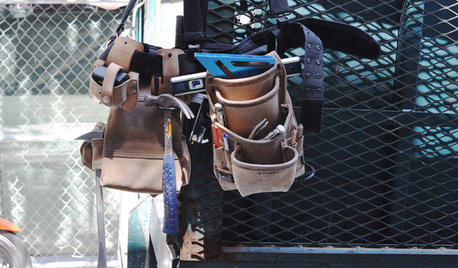
MOST POPULAR10 Things to Ask Your Contractor Before You Start Your Project
Ask these questions before signing with a contractor for better communication and fewer surprises along the way
Full Story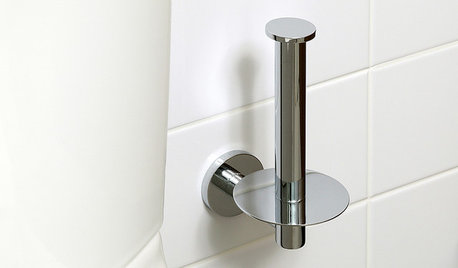
FUN HOUZZ14 Things You Need to Start Doing Now for Your Spouse’s Sake
You have no idea how annoying your habits at home can be. We’re here to tell you
Full Story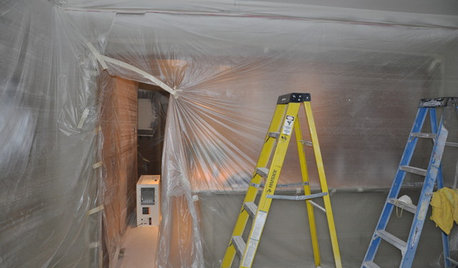
MOST POPULAR11 Things to Expect With Your Remodel
Prepare yourself. Knowing what lies ahead during renovations can save your nerves and smooth the process
Full Story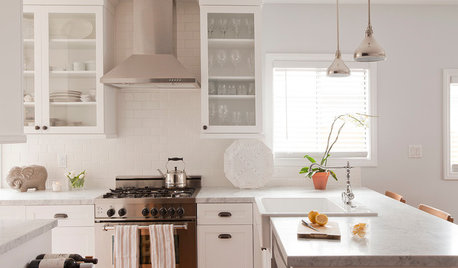
REMODELING GUIDES10 Things to Do Before the Renovation Begins
Prep and plan with this insight in hand to make your home remodeling project run more smoothly
Full Story
HOUSEKEEPING10 Things Neat Freaks Know to Be True
Do you err on the incredibly tidy side? Then you probably already live by these nuggets of neat wisdom
Full Story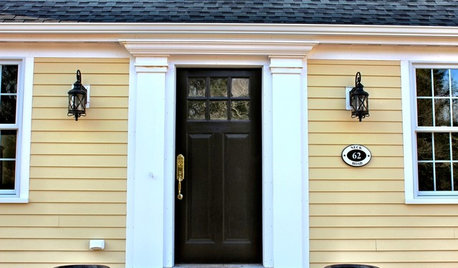
LIFE7 Things to Do Before You Move Into a New House
Get life in a new house off to a great start with fresh paint and switch plates, new locks, a deep cleaning — and something on those windows
Full Story
ORGANIZINGOrganizing Secrets: It’s the Little Things
Get these 8 small areas under control for a major boost in overall tidiness at home
Full Story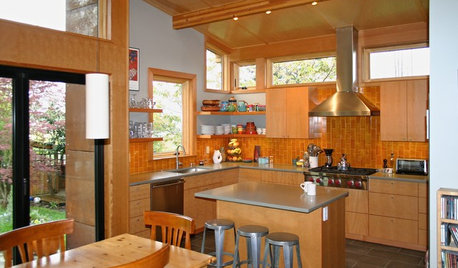
CONTRACTOR TIPS10 Things to Discuss With Your Contractor Before Work Starts
Have a meeting a week before hammers and shovels fly to make sure everyone’s on the same page
Full Story
LIFEHow to Handle Inherited Things You Don’t Really Want
Whether you’ve inherited a large collection of items or a single bulky piece of furniture, it’s OK to let it go if you don’t need or want it
Full Story


ravencajun Zone 8b TX